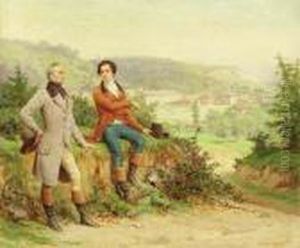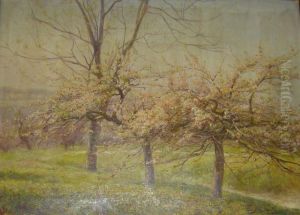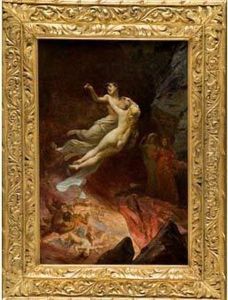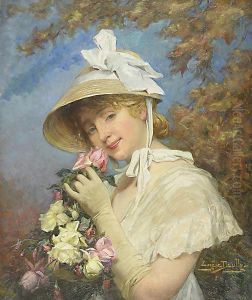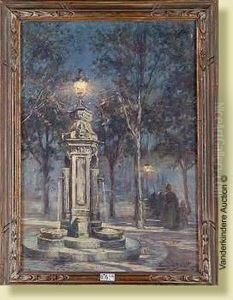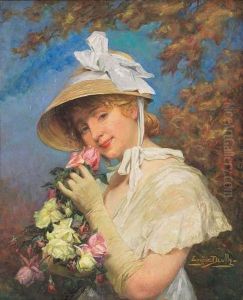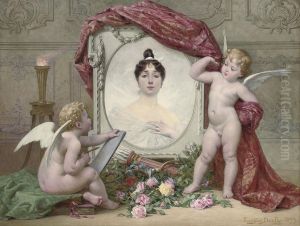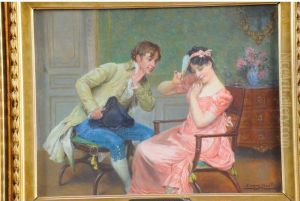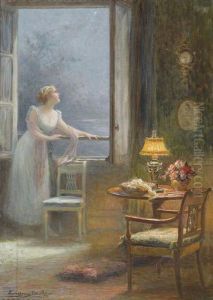Eugene Deully Paintings
Eugène Deully was a French artist born on April 22, 1860, in Paris, France. His artistic journey began at a young age, and he was primarily known for his genre paintings, portraits, and landscapes that captured the essence of French life and culture during his time. He studied under influential artists such as Jean-Léon Gérôme and Aimé Millet at the École des Beaux-Arts in Paris, which was the foremost art institute in France and a breeding ground for the country's most talented artists.
Deully's work reflects the academic art traditions of the 19th century, which emphasized classical themes, formal technique, and a polished finish. His paintings often depicted everyday scenes filled with vibrant color and meticulous attention to detail, characteristics that garnered respect among his peers and the art-loving public. Throughout his career, Deully exhibited his works at the Paris Salon, the official art exhibition of the Académie des Beaux-Arts in Paris. His participation in these exhibitions helped to establish his reputation as a respected artist of his time.
Despite his success and contributions to French art, Eugène Deully's legacy is less prominent compared to some of his contemporaries. Nevertheless, his works are still appreciated by art historians and collectors who value the academic art tradition. Deully's paintings can be found in various art galleries and private collections, serving as a testament to his skill and dedication to the craft of painting.
Eugène Deully passed away on February 10, 1933, leaving behind a body of work that continues to be studied and admired for its representation of 19th-century French society and artistic excellence. His commitment to the art world and his ability to capture the spirit of his time make him a notable figure in the history of French art.
